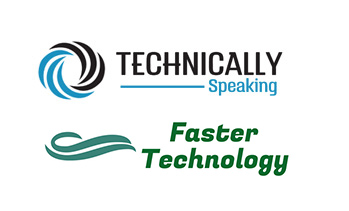Are you looking to attend a scheduled course?
This training is delivered within: Designing with the Zynq UltraScale+ MPSoC ONLINE »
The current schedule is showing on this page. If you specifically require team-based training on this subject, please contact your local team ».
Training Duration: 2 days
Course Description
This course provides hardware designers with an overview of the capabilities and support for the Zynq® UltraScale+™ MPSoC family from a hardware architectural perspective.
The emphasis is on:
- Identifying the key elements of the application processing unit (APU) and real-time processing unit (RPU)
- Reviewing the various power domains and their control structure
- Illustrating the processing system (PS) and programmable logic (PL) connectivity
- Utilizing QEMU to emulate hardware behavior
Hardware designers interested in understanding the architecture and capabilities of the Zynq UltraScale+ MPSoC device
- Suggested: Understanding of the Zynq-7000 architecture
- Basic familiarity with embedded software development using C (to support testing of specific architectural elements)
- Vivado™ Design Suite
- Vitis™ unified software platform
- Hardware emulation environment:
- VirtualBox
- QEMU
- Ubuntu desktop
- PetaLinux
- Zynq UltraScale+ MPSoC ZCU104 board*
* This course focuses on the Zynq UltraScale+ MPSoC architecture. Check with Doulos for the specifics of the in-class lab environment or other customizations.
After completing this comprehensive training, you will know how to:
- Enumerate the key elements of the application processing unit (APU) and real-time processing unit (RPU)
- List the various power domains and how they are controlled
- Describe the connectivity between the processing system (PS) and programmable logic (PL)
- Utilize QEMU to emulate hardware behavior
Day 1
- Application Processing Unit
Introduction to the members of the APU, specifically the Cortex™-A53 processor and how the cluster is configured and managed. {Lectures, Lab}
- HW-SW Virtualization
Covers the hardware and software elements of virtualization. The lab demonstrates how hypervisors can be used. {Lectures, Demo, Lab}
- Real-Time Processing Unit
Focuses on the real-time processing module (RPU) in the PS, which is comprised of a pair of Cortex processors and supporting elements. {Lectures, Demo, Lab}
- QEMU
Introduction to the Quick Emulator, which is the tool used to run software for the Zynq UltraScale+ MPSoC device when hardware is not available. {Lectures, Demos}
- Booting
How to implement the embedded system, including the boot process and boot image creation. {Lectures, Lab}
- First Stage Boot Loader
Demonstrates the process of developing, customizing, and debugging this mandatory piece of code. {Lecture, Demo}
Day 2
- Video
Introduction to video, video codecs, and the video codec unit available in the Zynq UltraScale MPSoC. {Lectures}
- System Protection
Covers all the hardware elements that support the separation of software domains. {Lectures}
- Clocks and Resets
Overview of clocking and reset, focusing more on capabilities than specific implementations. {Lectures, Demos}
- AXI
Understanding how the PS and PL connect enables designers to create more efficient systems. {Lectures, Demo, Lab}
- Power Management
Overview of the PMU and the power-saving features of the device. {Lectures, Lab}



